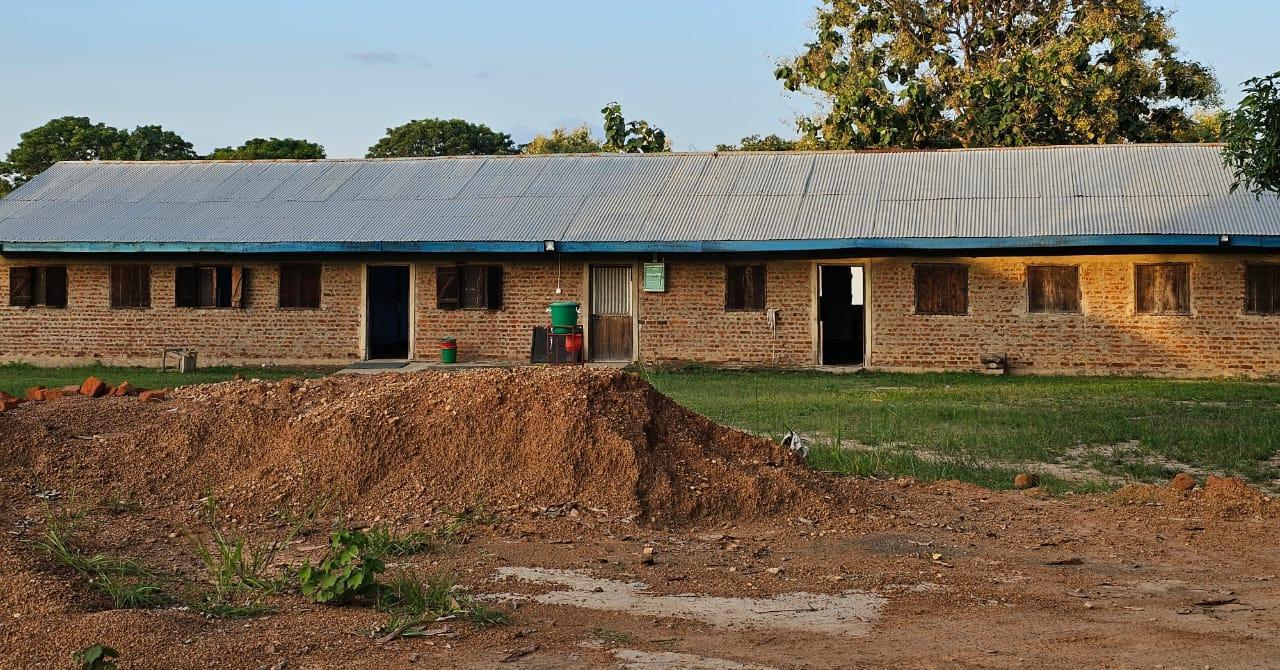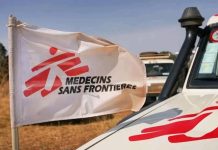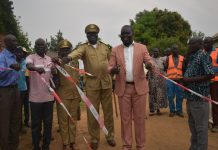Sheila Poonie
Africa-Press – South-Sudan. Kajo Keji is a small town south of Central Equatoria State that until recently lacked basic secondary healthcare services, is now beaming with activity as patients streamed to one of the local hospitals that heavily felt the brunt of the 2016 violence and vandalism that followed.
A new health facility recently opened its doors to the public, bringing with it hopes and aspirations for the long-overdue transformation of healthcare system.
“I didn’t know how my pregnancy would have turned out if this facility was not here today,” Jean Kiden wondered.
Kiden, who works as a volunteer with one of the local organizations here, is among the many locals who have benefited from the newly refurbished facility.
If it were not for the quick intervention of the medics here, Kiden says, her pregnancy could have turned out to be a nightmare.
“They really attended to me very well. The midwives are professionals. They take very good care of antennal care. They teach the woman very vital information, especially information about HIV/AIDS, before giving birth.
“The services are really good,” she said.
The Kajo Keji County Civil Hospital officially opened its doors to the public in early February 2023. The facility provides inpatient services.
Within a span of five months, medics here say that the lives of the local community have been positively impacted.
“Previously, patients in need of specialized medical care were often referred to Moyo Hospital in Uganda, located at a considerable distance,” Dr. Sekwat Saviour, Medical Director, Kajo Keji County State Ministry of Health, said.
The facility was left in ruins following the 2016 war, which left a trail of destruction throughout the country.
“The hospital was destroyed. There was only one clinic primary or health care unit around here,” said Anyiik Chaplain, who returned to the area in 2019.
The looting that followed left the few locals who remained behind with little option but to seek health services as far away as Uganda.
“The long and arduous journey proved fatal for many patients in emergencies,” added Dr. Sekwat.
But while the health service has since been brought closer to the people, locals are decrying the poor state of the roads, which, they say, is hindering service delivery.
“There was a day I referred a patient to Juba. Sadly, though, the patient arrived the following day due to the poor state of the roads,” noted Dr. Sekwat, who works with 23 other medical staff here
“If the roads were tarmacked, we would refer patients to Juba, not Uganda. I have patients who refuse to be referred to Uganda because of the expenses. If the road is rehabilitated, most of the challenges will be reduced.”
Lack of proper accommodation for the medical staff is another major stumbling block for the staff.
“If you look around, there is no administration block; the doctors’ quarters are in bad shape. The condition forced me to be here, but I should not be staying here. We should be sleeping in a special way, but that is not the case here.”
That’s not all. The staff here do not have reliable means of transport. “We don’t have mobility, another key tool for essential service delivery.”
“I am a medical doctor, but if there is an emergency in Nyepo, I need to move faster to treat the person, but we don’t have proper means of transport,’ lamented Dr. Sekwat.
However, despite these challenges, the medical team perseveres, working tirelessly, sometimes overtime, to ensure those in need of help receive the care.
But for some locals, like James Igga, who witnessed the full scale of the war, the new facelift is a constant reminder of the changing face of Kajo Keji, who felt the full scale of the violence.
“When war broke out, life became even more difficult for the community because people ran away and the hospital was destroyed. They looted iron sheets, doors, and windows; all the equipment was looted,” Igga told the City Review.
“This facility was miserable. It was left in ruins. The whole area and the hospital were covered by bush.”
The rehabilitation work was done with funding from Médecins Sans Frontières (MSF).
Though locals were relieved to have a local secondary health facility just a stone-throw away, some medics are advising the government to chip in, adding that overdependence on donors is not sustainable in the long run.
“We depend 100 per cent on partners. What happens when they leave?” said one of the medics at the facility.
But while locals are now beaming with confidence in a celebratory mood, about the new facility, some medics reveal that the neglect of the sector has exposed them to ridicule and shame due to low pay.
Those who spoke to The City Review talked of poor working conditions, adding that the whole community is on the brink of slipping back into the dark tunnels if medics decide to seek greener pastures.
“The good medics may not last long in government-aided hospitals unless given the right incentives,” he said as a matter of fact.
According to one of the staff here, some of them earn as little as SSP 15, 000 a month.
The rehabilitation work took more than four years to complete, having started in 2019.
Source: The City Review South Sudan
For More News And Analysis About South-Sudan Follow Africa-Press






